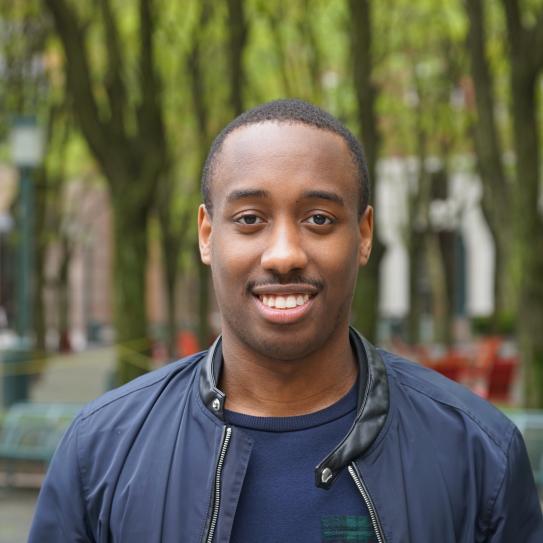
What inspired you to pursue a STEM-based degree? How did you discover your interest in the field?
Having a passion for the sciences in high school, supplemented with an inspiration from my father who is an electrical engineer, I always envisioned myself pursuing a career in STEM. For me, it was just about identifying what particular field in STEM I would want to pursue in college.
How would you describe your experiences as a Black and/or Latino student at the School of Engineering?
My experiences as a Black man at the School of Engineering have been challenging at times. Coming from environments that were diverse, and where I was the clear minority, I did not realize how isolated I actually was from the larger student population at the School of Engineering. There have been times where I was the only Black male in my classes. When I changed my major from Biomolecular Science to Science and Technology Studies, at the end of my first year, the advisement process was different than what I’d previously experienced, resulting in another adjustment period for me. I was very fortunate to have already started my college career surrounded by a support group that represented my background. Ultimately, the choice I made to change my major was the best decision for my career, and it was thanks to my support group.
What courses were challenging for you? How did those courses better prepare you for what’s ahead?
All chemistry courses were by far the most challenging for me. Those courses taught me to utilize study groups more. I have really benefited from the tips and learning processes of my peers. It also taught me that it is up to me to speak up and ask for help when I face a challenge.
What are your research/professional career goals?
My goal is to have a career in public health. I expect to continue my educational career at the graduate level, given my interest in further exploring the intersection between public health and technology, particularly as it relates to how these two areas impact marginalized communities. There is a vast amount of opportunities in this area, and my hope is to be counted amongst the professionals doing this critical work.
As an underrepresented minority student, is there something that you recognize more now that you didn’t think of before attending Tandon?
I recognize that program affiliations and club memberships can help you develop a sense of community, get to know your fellow classmates. Being a part of the Opportunity Program (OP) and National Society of Black Engineers (NSBE) has had such a positive impact on my experiences at Tandon. I can see how isolating and lonely it could be for someone like me entering Tandon without knowing anyone, without making any connections.
How important is it for incoming minority students to utilize their resources (i.e. professors, counselors, advisors, tutors, etc.)?
Utilizing the resources available at NYU is essential to your success. While professors are happy to respond to your requests for assistance, they expect you to take the lead in this area. College is different than high school, and you may need to change some of your help-seeking behaviors. Always touch base with advisors and counselors. It contributes to that support group I keep harping on! Each of the resources I mentioned will best guide you to the academic and personal success you hope to achieve.
What advice would you offer to Black and Latino men who are interested in the STEM field?
My advice would be to surround yourselves with a strong support group. Whether that be friends, advisors, or professors, it is a great feeling to know that there are people who care about you, both as a student and as a person. I was fortunate to start my career at NYU in a program with people who have shared similar experiences and background as my own.


